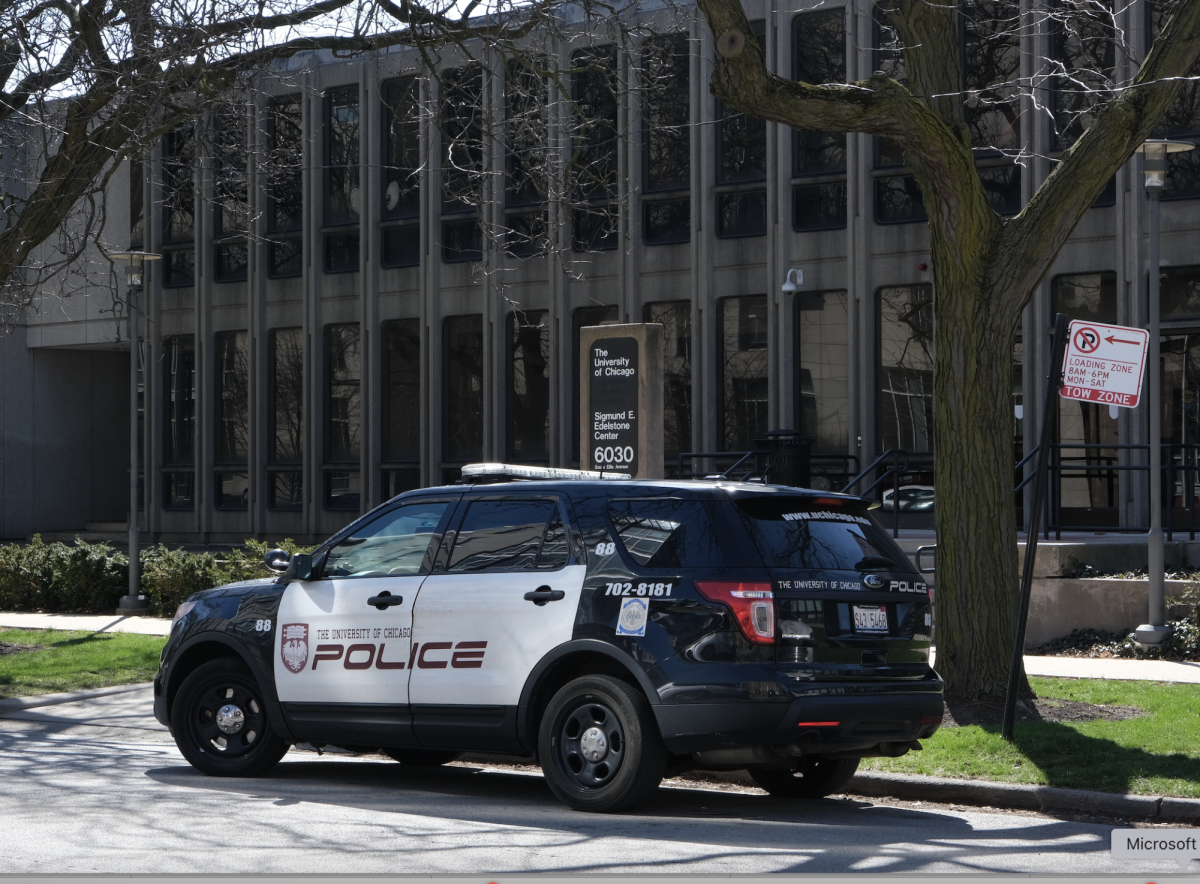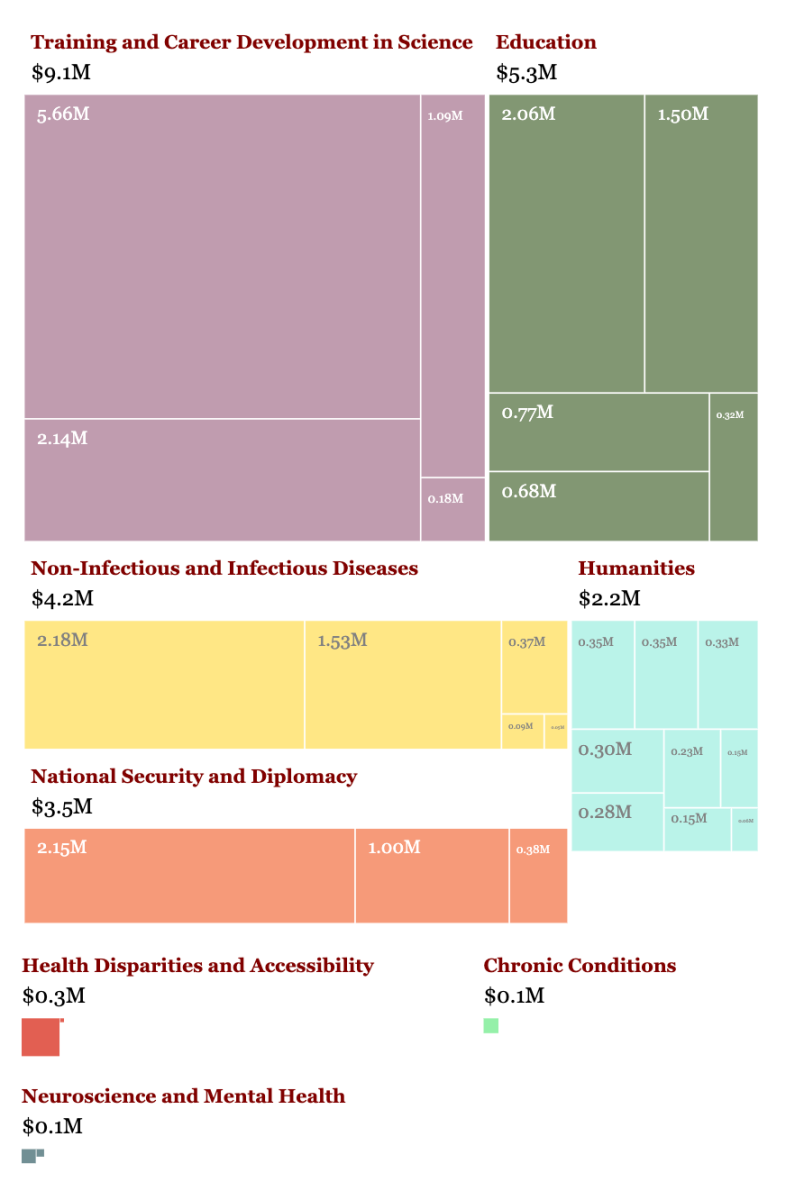By design and by law, the University of Chicago aspires to be responsive to the needs of students with disabilities. This is the sole purpose of several institutions on campus. The University’s Student Disability Services (SDS) office is tasked with arranging accommodations for students who need them. The University’s ongoing “Access UChicago Now” campaign, launched in 2019, is an extensive initiative to solicit feedback on the issue. To this end, the two-year-old Accessibility Student Advisory Board is set up to relay concerns from UChicago students with disabilities to the Office of the Provost.
But many students with learning disabilities told me a different story about the state of accommodations on campus. One student I spoke with described how the lack of a part-time status accommodation isolated her socially and set her back in academics. Another student, who was recently diagnosed with ADHD, is struggling to secure accommodations because SDS requires documentation that discusses the “childhood onset” of the condition. Yet another dropped a major because her chronic illness made it impossible for her to balance a full course load.
And then there are the students whose stories this article does not tell. Several refused to share information with me on the record, sincerely convinced that to publicly criticize SDS would put their accommodations in jeopardy: that individual staffers, in other words, would retaliate against them.
Surely, a process that leaves this many students behind is not functioning at its best. How is it that UChicago’s robust and well-meaning infrastructure can leave so many students behind? And, perhaps more importantly, what can be done to improve it?
The answer starts with SDS—but it doesn’t end there.
Student Disability Services
Fourth-year Gabby Birzh was diagnosed with a chronic illness two weeks before she arrived at UChicago. Until partway through her second year, she had to fly to and from New York every quarter for treatment, which often caused her to miss class and exams. But, not knowing that her condition qualified as a disability, she did not initially seek accommodations.
“I suffered through a lot of my first year and a half at college,” Birzh said. “I relied on the generosity of my professors, if they were willing to be generous.”
During this time, on the advice of her academic advisor, Birzh studiously avoided professors who had poor reputations among students with disabilities for not being accommodating.
Birzh’s difficulties peaked during the winter quarter of her second year, when a flare-up of her condition landed her in the emergency room. She emailed a professor at four in the morning asking to make up a quiz that was scheduled for later in the week. The professor refused, even after Birzh’s academic advisor emailed him to corroborate her account.
“‘I don’t know if my condition is going to continue to deteriorate. This is not sustainable. I can’t keep going,’” she recalled thinking to herself. “And so I looked into whether or not I could receive accommodations.”
But in the process of getting her own accommodations, Birzh started hearing horror stories from other students. “‘You should talk to SDS, but, be warned, I haven’t had a good experience with them,’” she heard again and again.
In the end, Birzh secured accommodations through SDS. But she was so shaken by the experience and other students’ testimony that, upon encouragement from one of her professors, she wrote her public policy senior thesis about the experience of UChicago students with disabilities.
She conducted interviews with 19 students with disabilities. Her main finding was that SDS’s documentation requirements present a barrier to many students seeking accommodations. While disability discrimination is outlawed under the 1990 Americans with Disabilities Act (ADA), institutions have leeway to determine what constitutes a disability, so long as their examination procedures are offered “in a place and manner accessible to persons with disabilities.”
UChicago does this by requiring students seeking accommodations to provide certain medical documentation and tests. The requirements vary according to the disability, with specifics on the office’s website.
Per SDS’s guidelines, this documentation must come from a specific time frame. For example, students with ADHD are required to provide both “current” documentation, as well as a clinical summary of “childhood onset,” detailing symptoms that the individual had as a child to prove a long-term history of the disability.
The documentation requirements often mean that students must get additional testing, beyond what they have on hand, to obtain accommodations. Birzh said that this creates a time burden for many students, sometimes in the face of urgent academic responsibilities. SDS’s website warns students that the documentation may take several weeks, urging them to give the office plenty of advance notice.
“Some students don’t know how long this process takes, so they’ll do it when fall quarter starts, and it will take weeks for them to actually get this paperwork,” she said. “Usually, within a ten-week quarter, that’s bad; now, with a nine-week quarter, it’s worse.”
But for others, the stakes are higher. One student Birzh spoke with was unable to secure accommodations because the tests cost too much. “They couldn’t afford it, so they just never ended up applying for it,” Birzh said.
Generally, she said, “students from a lower socioeconomic status struggle the most. This documentation can be really expensive, and if people have lesser access to health care, and insurance in general, it can cause a big problem.”
Third-year Cassidy Medina, a member of Students for Disability Justice (SDJ) and the University’s Accessibility Student Advisory Board, agreed.
“You need a lot of proof to prove that you are disabled, which is not fair for students who are lower-income or first-gen, who don’t have the financial resources for that, or don’t have insurance that covers that,” Medina said.
According to University spokesperson Gerald McSwiggan, UChicago’s Student Health Insurance Program (U-SHIP) covers some, but not all, of these tests. McSwiggan also noted that students who cannot afford the necessary testing can also apply to the University’s emergency assistance programs, which offer between $500 and $3,000 for “unanticipated medical expenses.”
If a student’s request for accommodations is granted, they receive a letter from SDS that they may present to their instructors. Students have several options, both informal and formal, if instructors do not respect their accommodations. Informally, as outlined on SDS’s website, students can raise the issue with their instructor directly, or with the Director of SDS, Charnessa Warren. When I asked for more details about this process, McSwiggan wrote that the Director of SDS “hears the student’s grievance and meets with the instructor, as appropriate.”
If a student disagrees with the outcome of this informal process or would prefer to go directly to the Equal Opportunity Programs (EOP) office, which deals with matters of discrimination and accessibility on campus, they can utilize formal grievance procedures. To file a formal complaint, the student may turn in a written and signed grievance to the Associate Provost for EOP. McSwiggan wrote that the EOP may review the accommodation at this point, “which may result in changes to the accommodation determination.”
Additionally, if students believe a faculty member is discriminating against them on the basis of a disability, they have the option to file an anonymous complaint via EOP’s website.
Ultimate power to enforce accommodations can only be tapped through these administrative avenues, not through SDS itself. Many students with disabilities felt that this inability to enforce accommodations seriously limited what SDS could do for students, naming it as a key structural deficiency in the office’s operations.
“SDS can’t force a professor to implement an accommodation. And that’s a big issue, because some professors don’t understand,” said fourth-year Sadie Morriss. “SDS, even if they wanted to advocate for students, they can’t.”
What’s on The Table?
SDS is also limited in the accommodations it has permission to grant. Recently, the issue of allowing part-time status for disabled students has garnered attention from the student body.
Several student organizations on campus have taken up the cause in recent months. Earlier this year, College Council (CC) passed a resolution calling on Dean of Students Jay Ellison to permit part-time status for students with disabilities. Morriss, speaking on behalf of SDJ, also mentioned the issue at a recent rally organized by the UChicago Student Activist Network, a coalition of campus activist groups.
Morriss told me that it is her mission to re-implement part-time status at UChicago due to her personal background: she is bipolar and had to take two leaves of absence to get treated for depression.
“The leaves I had to take disrupted my life completely,” she said. “I had to move home, I had very little contact with my friends, I lost my identity as a student—all things that would have been hugely helpful and [would have] prevented the eventual depths of depression that I fell [to] because I was cut off from my community.”
“If part-time status had been an option for me, I could have gotten intensive treatment while also staying in school. That would have been a lot better for my health and recovery in general,” she said.
Part-time status was an option for all students until 2015, at which point it was only available by petition for students with health issues and fourth-years. Announcing the change, Ellison cited students graduating in a timely manner and University financial concerns as rationale. In January 2021, SDS administrators told members of UChicago College Council that part-time status was not an available accommodation for disabled students.
When asked for comment about the University’s decision not to offer part-time status, McSwiggan wrote in an email that “full-time status in the College ensures all students have the same opportunities. If full-time participation in the College is not possible, the College’s leave of absence policy enables students to take time away and return when they are ready.” Currently, this policy permits students to take up to eight cumulative quarters of absence.
Students with chronic illnesses face a unique host of difficulties that the current accommodations often cannot account for. Medina, who has an autoimmune disease, missed lots of classes due to doctor’s appointments during her second year. Several of her instructors were unsympathetic.
“They were like, ‘if you don’t attend class, your participation grade is going to go down. You should just take a W[ithdrawal], or take a medical leave of absence.’” The dominant message, she said, was “boo-hoo”: “just don’t take this class anymore.”
Medina requested attendance flexibility from SDS, which would have excused her unpredictable absences. But an SDS staffer told her that the only thing they could do was create a “contract” for Medina and her instructor to sign, which agrees on a fixed number of absences, and penalizes her when she exceeds that prearranged number. Medina described this as “a lousy accommodation that doesn’t help me.”
“I have a chronic illness—which means ongoing—and it’s super random. So I can’t just be like, ‘oh yeah, I’ll miss four days,’” she said. In sum, “the contract does not function well for people with chronic illnesses.”
Indeed, some students, and even faculty members, find it easier to simply work around SDS. Third-year Kelsey Gilchrist, who has a learning disability, said that she has had negative experiences with SDS’s testing requirements. The handful of times that she arranged an alternative testing location through SDS, they gave her “poor testing conditions,” once arranging for her to take a test next to a noisy construction site. Put off by these experiences, she has since sought informal accommodations from the physics department—which they have been happy to grant.
“The professors hate dealing with them. They’re like, ‘are you good just testing in this room?’ and I’m like, ‘yup,’” she said. “I prefer not to go through them for anything…They make everything very formalized.”
The Accessibility Student Advisory Board
The good news is that there’s a way for students to communicate these and other issues to the University’s administration through a body called the Accessibility Advisory Board.
The Provost’s Office created the Board in 2019 to relay student feedback on disability-related issues and to identify ways to increase awareness of existing services and programs. It consists of student representatives from UChicago College, graduate, and professional schools, liaising between students and the Office of the Provost.
But Kristen Busch, who served on the board for one year, and Medina, who has served on the board since its inception, both said that it has proven largely ineffective. Asked what the board’s accomplishments had been, Busch could not think of anything; Medina went so far as to say that “I don’t know what we do.”
Medina and Busch said that their primary goal as student representatives last year was to implement a training curriculum that would inform instructors about their responsibilities under the ADA and how best to accommodate students with disabilities. But this project didn’t gain traction. The issue, they said, was that the administrators they were working with placed the onus of making change back onto the students.
“Their response is, ‘OK, you want to have a training for faculty about what accommodations are and why they need to grant accommodations? Then you develop a training; you provide it for faculty members and staff. Great, go do it,’” Busch said. “That work shouldn’t have to fall on students. That should be led by University staff who can spend time, and money, in developing these trainings.”
This inertia has led her to view the board as “performative.”
“Yes, we’re coming up with great ideas; but if the University was truly listening, why aren’t they running with them? Why does the onus fall back on students?” she said.
Since students lack the authority to make the training mandatory, they can only offer it as a voluntary opportunity. As a result, Busch suspects that the only instructors who will attend are already sensitive to disability issues.
Busch pointed to the SG resolution advocating for part-time status, which the body unanimously passed in April, as evidence that the University is not in touch with the voiced needs of students with disabilities.
“Even if you have mass and unanimous student support for something, the University still won’t do anything,” she said.
Still, disability activists on campus have seen progress in other areas. SDS conducted a student survey in July 2020 and made changes that activists praised in our conversations, such as adding step-by-step instructions for how to apply for accommodations on their website.
Morriss has also been working with Student Government and University administrators to add disability-related questions to course evaluations, and she’s been heartened by the response she’s received.
“I’ve been impressed with specific administrators’ willingness to listen to us. They’re really excited to help, and I’m hopeful that that might actually be a change that happens.”
A Cultural Issue
When beginning this project, I set out to report on the structural reasons why so many students’ needs were not being met. But numerous students with disabilities emphasized that the issue is not just structural: it’s cultural as well.
UChicago is a notoriously difficult and competitive environment. And from our school’s well-documented culture of high performance has risen an obsession with creating a level playing field—one that’s quick to dismiss disability accommodations as an unfair leg up.
Birzh told me that the issue “goes past the documentation requirements: why this difference occurs is an attitude problem at UChicago. There’s a skepticism around accommodations being real.”
“I do think this comes from UChicago’s attitude of academic rigor and their whole, like, ‘life of the mind, yadda yadda, you have to suffer because there’s no fun here whatsoever.’ While we all laugh about it, there’s truth to it, and I think that that really impacts a lot of students from getting accommodations,” she said.
Recently, SDJ has been working to build support networks among both prospective students and UChicago alumni with disabilities.
“I know of students who have gone back to their high schools and told disabled students, ‘do not apply. Do not come to UChicago. This place will not be for you,’” Busch said. “Before, during, and after, at every step of the way, we need to be supporting students with disabilities; and I don’t think we are right now.”
Others pointed to UChicago’s notoriously difficult classes—the words “Gen Chem” came up in multiple interviews—as examples of a teaching environment oriented around rigor at the expense of inclusivity and accommodation.
“The goal should be to teach, and not to punish,” Gilchrist said. “There’s no way you can ever perfectly level the playing field for everyone, but reducing the things that are set up to make students fail is one way of going about that.”









